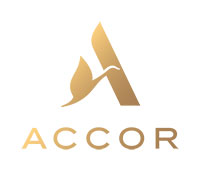Cornell Study Analyzes Advantages of Private Ownership for Hotel Chains
|
Cornell Study Analyzes Advantages of Private Ownership for Hotel Chains
|
Catégorie : Monde - Économie du secteur
- Chiffres et études
Ceci est un communiqué de presse sélectionné par notre comité éditorial et mis en ligne gratuitement le 20-06-2008
Reversing the trend of the 1990s, a rash of public hotel companies were “taken private” in leveraged buyouts during the first years of this century, including such notable firms as Prime Hospitality and Hilton. A new hotel research report by John B. (Jack) Corgel analyzes these transactions to determine why private equity was so active in the hotel industry. The report, “Private Equity Investment in Public Hotel Companies: Recent Past, Long-term Future,” is available at no charge from Cornell's Center for Hospitality Research (http://www.hotelschool.cornell.edu/research/chr/pubs/reports/2008.html).
Corgel, who is the Robert C. Baker Professor of Real Estate at the Cornell School of Hotel Administration, found that private equity has several advantages over public companies in ownership of hotel companies primarily due to their real estate interest. Among other advantages, he found that private equity firms have more consistent access to capital than do public firms during recent years, while at the same time publicly held real estate assets tend to be undervalued by the market.
Private Equity Has Wider Scope of Action
A distinct financial advantage in current low interest rate environment is that private firms can make greater use of debt financing than can publicly held real estate investment trusts (REITs). Beyond the financial advantages, private firms do not face the regulatory requirements that cover public companies.
Then there’s profit. “In the end, private firms have been able to realize considerable return from their purchases,” said Corgel. “Blackstone, for instance, repackaged and sold Prime Hospitality’s AmeriSuites chain to Hyatt. I cannot see how two public companies could have completed this transaction in the way that it worked for Blackstone and Hyatt.”
Although the flow of financing has been cut off by the current credit crunch, Corgel sees reasons why the hotel industry will continue to privatize when normal market conditions resume, even though approximately 80 percent of hotels are already in private hands. “Although there’s nothing wrong with public ownership of hotel chains, my study indicates that private ownership might be a better overall fit for the industry,” he concluded.
|
|





